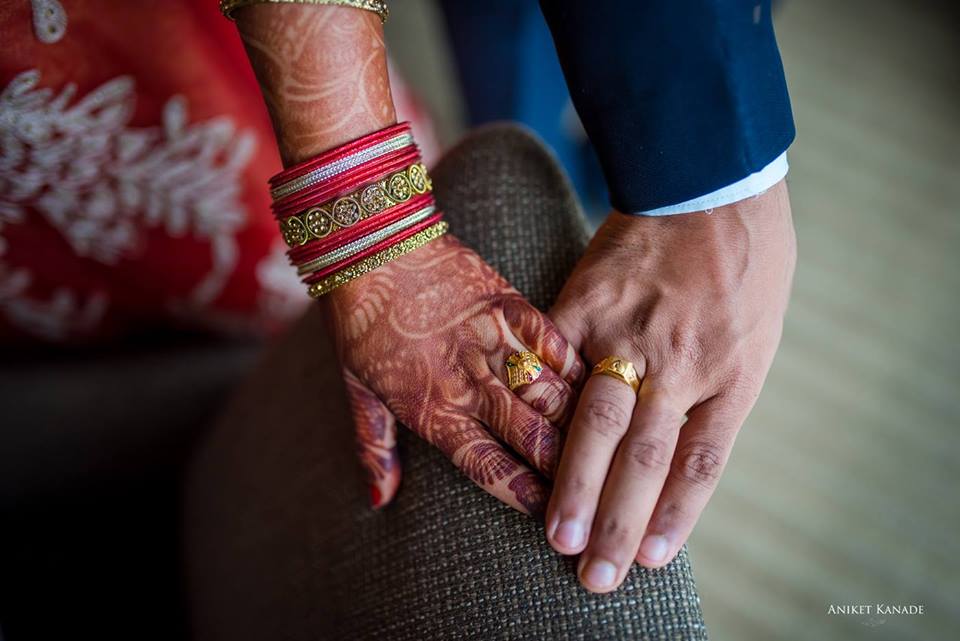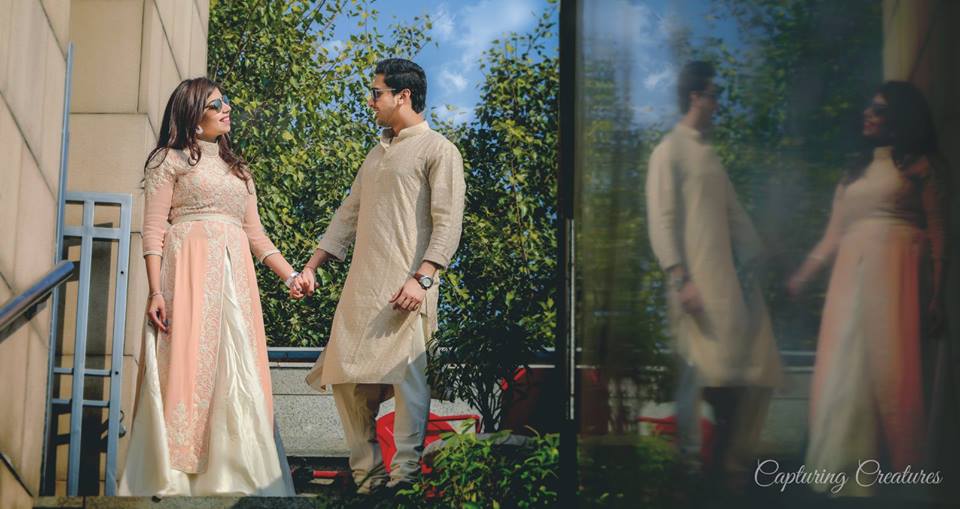Marriage is an entirely new journey for you and your partner. You’re headed towards a new and bright future, one in which you do many things together like build a family, establish a home to call your own, and weather a new sets of ups and downs together as a family unit. It’s important to remember, however, that marriage isn’t always sunshine and rainbows. At the end of the day, there are still parts of marriage where we must make decisions with our heads rather than our hearts. This is where a prenup or a premarital agreement can enter the picture.
Indian Prenup

Image: Aniket Kanade Photography
While the concept of a prenuptial agreement can be similar across countries, some nations and cultures have slight differences on the subject. In India, prenups aren’t binding under existing marriage laws because, culturally speaking, marriage is more a religious bond than a contract. As a result, there’s no particular law that actually talks of the enforceability or legality of prenups in the country yet. While prenups aren’t extremely widespread across the nation, they are considered as contracts and are therefore under the jurisdiction of the Indian Contract Act.
Below are some key things to think about if you’re looking to get a prenup, since these kinds of agreements are not the simplest things to understand. Settling on an actual written agreement in order to form a compromise on delicate money matters and more is not a very comfortable conversation for any couple to have. However, if you are considering a prenup, the key things below might be worth looking at.
What Does a Prenup Cover?

Image: ArrowMultiMedia
No two premarital agreements are the same, which means it’s extremely important to understand what is covered and what is not included in a premarital agreement. In a general sense, valid premarital agreements tend to provide answers to some pressing matters involving the obligations and rights of the couple towards assets each individual has obtained before and during the marriage.
- Parts of these assets include income, real property, earnings, and more. Prenups can actually dictate who gets to use, buy, transfer, sell, lease, or even dispose assets upon certain situations. These situations also include events where one of the partners or the couple has been separated, disinherited, or has died.
- Likewise, a valid agreement can preserve the property the couple has brought with them into the marriage, and distribute the rights of the couple on these properties and income acquired from them throughout the marriage. In fact, a prenup can provide the means to allocate a specific sum of resources to either spouse should they be separated.
- Should both parties wish to be extra precise with the terms of what they do during the marriage, especially with legal concerns, lawyers well-versed in prenups may allow them to do so. For instance, take the intricacies of auto accidents. Both parties may be allowed to decide on the course of action should one of them be involved in an auto accident and happens to be in a condition where they cannot decide anything for themselves.
- According to The Quint, although prenups aren’t “legal” in the strictest sense of the word in India, for example, partners who wish to have an agreement are still free to form a “contract” that acts similarly to a prenup and has guidelines for them to follow in case something happens to their marriage. This means they aren’t to be underestimated or devalued in India, as the merits of these contracts are still seen in use often and often applied to marriages.
What’s Not Covered in a Prenup?

Image: Capturing Creatures
Prenups are also helpful in making sure there aren’t any rights or obligations that are mishandled during the marriage. This means both parties get an equal say on how they want certain aspects of the prenup to be managed, and it’s better to have lawyers clarify these specific situations so everyone has a common understanding.
For instance, both parties should be careful that the agreement they create doesn’t promote the marriage dissolution. Courts have the right to refuse the enforcement of a prenup if there are incentives for both parties to divorce. This is an important factor, as a prenup only accounts for the realistic and rational attempt of a possibility of the marriage ending.
Additionally, Economic Times of India Times explains that a prenup like agreement is only valid in the eyes of the Indian courts if both parties involved have signed the agreement voluntarily without threat, force, or undue influence, and if both parties agree to the terms. Aside from these restrictions, the prenup should also be fair to both parties: divisions of things such as financial assets, personal possession, and division of property must be certified by lawyers that each party should have. If a party wishes to do this without legal counsel, there are certain processes involved that will allow the enforcement of this prenup, such as another document stating that the person waives representation by a lawyer on the matter, and one is fully aware of what they are signing. Otherwise, the prenup won’t be enforced.
Prenups and Children Born of a Marriage

Image: Neha Brackstone Photography
It’s important to understand that prenups can’t abridge or modify the statutory support obligations of a party towards a child. Courts can’t remove or limit a parent from being obliged to support their children.
Think Through Your Need for a Prenup
Marriage isn’t solely about the proverbial honeymoon phase, where a couple is so in love with each other that they tend to just “go with the flow.” Sometimes, it’s good to approach the subject of marriage thinking about potential scenarios that can affect your relationship with one another, and your status as individuals, and preparing for them. A premarital agreement or a prenup can be something to debate about, especially if you carefully think through the various advantages and disadvantages.

Image: Abhay Sawant Photography
Regardless of your decision, and what your respective legal counsels may advise, in the end it’s better to have tackled key things and get a prenup than not to have discussed the topic at all.
After all, when you’re planning to enter a marriage it’s as good a time as any to assess not just your current financial situation, but your current situation as an individual. Do that now, before entering a new part of your life where you will make joint decisions with your partner. Protecting and ensuring you have personal assets or parts of your assets that won’t be touched by this union can be a guarantee that you have some degree of safety should the marriage not work out. In the end, it all boils down to what you’re willing to prepare for and what you plan on doing in these circumstances.
Guest Bio
This article was contributed by Dianna Charles-a promising young law enthusiast that hopes to bring her youthful spirit in her field. She tries to add a refreshing modern take to topics on the legal world that people can learn from. Dianna enjoys her free time with friends and family, and loves to cook for them.
Featured Image: The VIP Studio India






